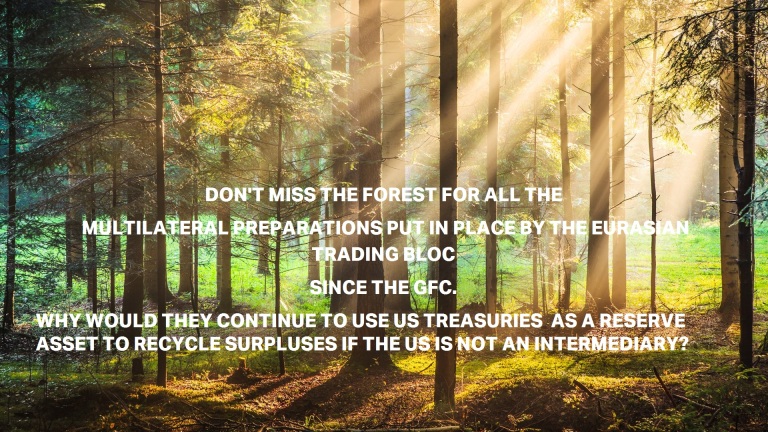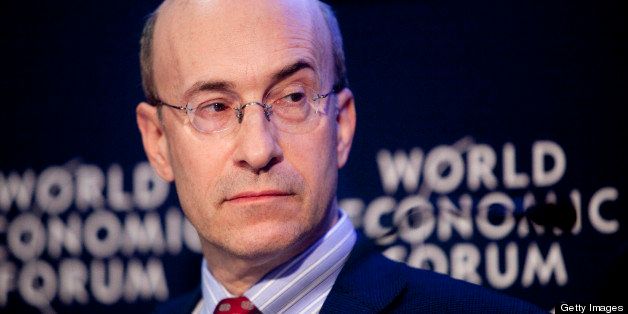KEN ROGOFF FEB 12TH 2019
"More gold needed
He is particularly concerned about the amount of gold held by emerging market central banks, suggesting they should increase their gold reserves by several percentage points.
“Emerging market central banks should hold fewer dollars and more gold as a way of diversifying their portfolio. It’s a simple question of diversification. At the moment, most emerging market central banks hold 1–2% of their reserves in gold, with 70–80% in dollars and the rest in euros and other currencies. I think a 5% allocation seems a natural position to take as part of an effective diversification policy – although it could be higher. After all, the US share of the global economy is shrinking, power is being centralised and we don’t know what the future holds,” he says.
Rogoff’s rationale is clear: the US dollar is increasingly dominant on the global stage yet US deficits are increasing and may well continue to do so.
“The dollar is more widely used than ever. A growing chunk of European corporate bonds are in dollars, not in euros. Whenever Asian countries issue debt abroad, they do so in dollars. Reserves are in dollars and numerous goods are priced in dollars. So the dollar is more dominant today than under Bretton Woods – but that doesn’t mean it’s stable,” he says.
“We already have trillion-dollar deficits right now and they’re manageable. But if corporate, local, state and federal debt is allowed to grow, there will come a point when the US gets stressed. And if deficits have doubled or tripled by then, inflation is bound to ensue. Our system is not built for high inflation so it would cause incredible financial turmoil and stress. It may take decades but these things always tend to blow up at some point. And, as the US economy becomes proportionately smaller and the dollarisation of the global economy becomes larger, the equilibrium becomes increasingly fragile,” he adds.
Risk mitigation
Against this backdrop, the rationale for holding gold becomes even clearer. “The point is, Treasury bills are not a riskless asset. They may be for two to three years but not necessarily for the long term, so if you want to build a 40-year plan, you should have some diversification. Let’s face it – if you’re a hedge fund manager and there is a 3–4% chance you will get wiped out and a 96% chance you will get very rich, that’s a bet worth taking. If you’re a country, that’s not such a smart bet,” Rogoff explains.
As a hedge, gold has enormous value. So it makes sense for HNW individuals and even for some pension funds to hold a small percentage of their assets in gold. [you don't want to know how much pension funds have allocated to gold or miners...hint: it's below 1%]
He believes that institutional investors and wealthy individuals should also allocate a proportion of their portfolio to gold. “As a hedge, gold has enormous value. You never know what’s going to happen and when something really bad happens, gold is probably going to be worth a lot to you. So it makes sense for high net worth (HNW) individuals and perhaps even for some pension funds to hold a small percentage of their assets in gold,” he says.
Looking ahead, Rogoff suggests that gold is also likely to increase in value as its global role evolves. “I suspect gold’s value will go up in real terms. I think the trend towards digital currencies will strengthen the value of gold. As emerging markets expand and trust the US less, that will also strengthen the value of gold. So, as part of a larger portfolio allocation, it seems very reasonable to me,” he concludes." Ken Rogoff
Aside: IMF studied what the best allocation would be for forex reserves and it found that 15% of reserves in gold was enough of a counterbalance for when real yields went negative. Of course, this means the LBMA and ESF would not be in the market dumping naked shorts during the most inactive hours of trading.





